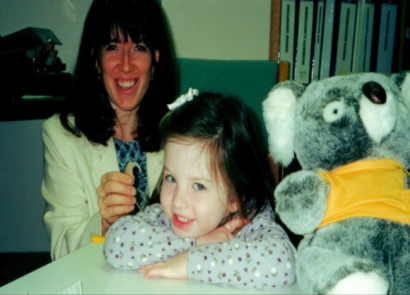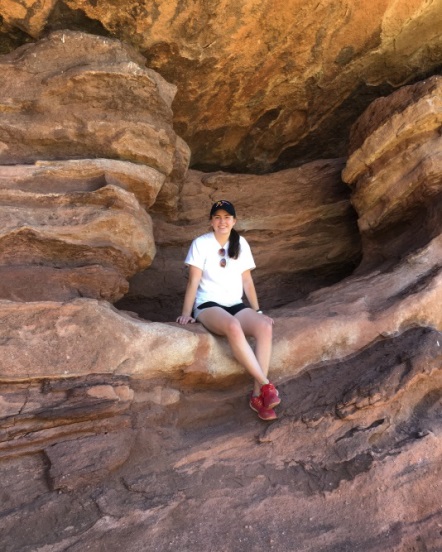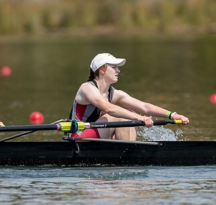 Kelin M., a recent Graeme Clark Scholarship recipient, is working as a summer intern this year, supporting the Consumer Marketing team. Below she talks about her experience growing up Cochlear.
Kelin M., a recent Graeme Clark Scholarship recipient, is working as a summer intern this year, supporting the Consumer Marketing team. Below she talks about her experience growing up Cochlear.
I was born a healthy, albeit plum-colored (the umbilical cord was wrapped around my neck several times) baby in March 1997. I was my parent’s first child, and my mom loved reading the “What to Expect” baby books.
A loud and active infant, at nine months, my development was right on target. However, my parents began to become concerned about my hearing.
 A critical moment occurred shortly after I turned one; my mom was playing the usual games with me, asking “Where are your eyes?” and “Where are your ears?” She noticed that I would watch her closely during this game. Deciding to try something, she asked me similar questions but without sound. Despite this change, I continued to get every question right. I had been lip reading the entire time.
A critical moment occurred shortly after I turned one; my mom was playing the usual games with me, asking “Where are your eyes?” and “Where are your ears?” She noticed that I would watch her closely during this game. Deciding to try something, she asked me similar questions but without sound. Despite this change, I continued to get every question right. I had been lip reading the entire time.
Shortly thereafter, my parents took me to an audiologist, where their suspicions were confirmed: I had a moderate to severe hearing loss. My hearing loss was attributed to enlarged vestibular aqueducts, and my parents were informed that my hearing loss would likely progress.
My parents immediately started researching communication options. I was soon fit with hearing aids and was enrolled in an auditory-verbal preschool.
I loved my hearing aids, and my speech quickly improved. However, as predicted by the doctor, my hearing worsened due to a few minor head injuries, and my hearing aids soon proved ineffective.
After much consideration and research by my parents, I was set to receive a cochlear implant a month before my fourth birthday.
Because of my large vestibular aqueducts, I experienced considerable dizziness and nausea after the surgery. Within a month of my activation, though, the dizziness subsided, and life was significantly easier than it was before my cochlear implant. I suddenly became more social and had more energy because I wasn’t working so hard to hear anymore.
Beginning in kindergarten, I was mainstreamed in a small K-8 charter school with few accommodations. I loved talking to my teachers and peers about my technology, which I proudly decorated with stickers. I was fortunate to grow up in a very accepting and encouraging environment—one that taught me to be confident and to advocate for myself and my needs.
Now, fifteen years and four upgrades later, I continue to benefit immeasurably from my cochlear implant.
Despite a cross-country move from Colorado to Pennsylvania in the middle of high school, I graduated with high honors and was involved in a number of clubs and varsity sports. I now attend Washington College in Chestertown, Maryland and will be a sophomore this fall. At WAC, I am a Dean’s List student, Presidential Fellow, Peer Mentor for incoming freshmen, member of the Campus Christian Fellowship, sister of Zeta Tau Alpha, and a varsity rower.
Although I am undeclared, I plan on pursuing a double-major in psychology and sociology and a minor in political science.
Without my cochlear implant, I would not be who I am today. I wouldn’t be where I am, either, which currently is at work at Cochlear America’s Centennial, Colorado office, where I am interning this summer.
I am incredibly grateful for everything that my cochlear implant allows me to do, and I am excited for the opportunity to be working for the very company that has provided me with the ability to hear.
